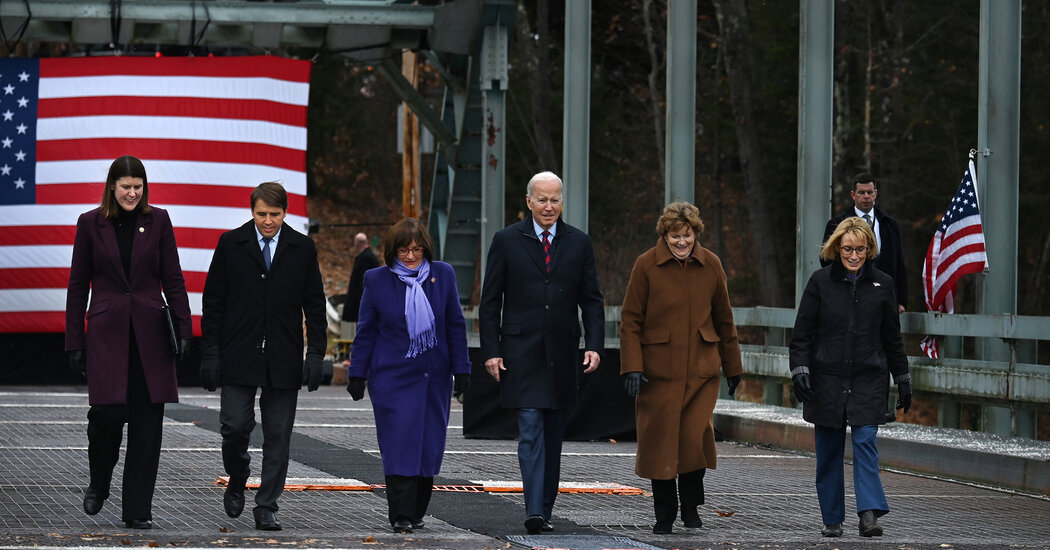
“I truly believe that 50 years from now,” he said, “historians are going to look back at this moment and say, ‘That’s the moment America began to win the competition of the 21st century.’”
Brian Deese, the director of Mr. Biden’s National Economic Council, said in an interview that the law would increase competitiveness and productivity through a variety of spending programs.
“This bill is going to be a game-changer in getting Americans to work,” Mr. Deese said.
He added that it would allow people to gain access to economic opportunities through better public transportation, roads and bridges, and provide high-speed internet, which he called “the lifeblood of the 21st-century economy.”
China’s large investments in its own infrastructure, and its threat to U.S. dominance in new and longstanding global industries, loomed large over the congressional negotiations that produced the law. Democratic and Republican lawmakers are more attuned than ever to Chinese spending, thanks to Mr. Biden and President Donald J. Trump, who both put competition with China at the center of their presidential campaigns last year.
Understand U.S.-China Relations
A tense era in U.S.-China ties. The two powers are profoundly at odds as they jockey for influence beyond their own shores, compete in technology and maneuver for military advantages. Here’s what to know about the main fronts in U.S.-China relations:
Government investment in infrastructure and advanced industries has been key to China’s economic transformation to a country of skyscrapers and bullet trains from one of subsistence farming, bicycles and dirt roads only 40 years ago. Partly because of hefty government subsidies, the country manufactures more than half of the world’s steel and cement, most solar panels and a growing share of electric vehicles.
China spends more than 5 percent of its gross domestic product on infrastructure, far more than most developed countries and several times the proportion in the United States, where federal infrastructure spending is poised to grow to about 1.2 percent of gross domestic product in the coming years, according to the Metropolitan Policy Program at the Brookings Institution.
U.S. officials have accused China of seeking advantage through more nefarious means as well. Mr. Biden raised concerns about China’s “unfair trade and economic policies” in his virtual meeting with Mr. Xi on Monday, according to a White House readout of the call. Mr. Biden has chosen to maintain tariffs that Mr. Trump imposed on China as retaliation against what his officials charged were intellectual property violations and other unfair trade behaviors.

